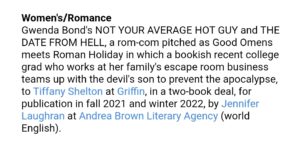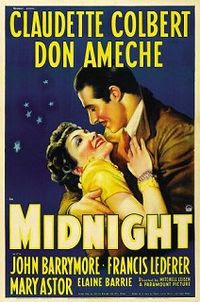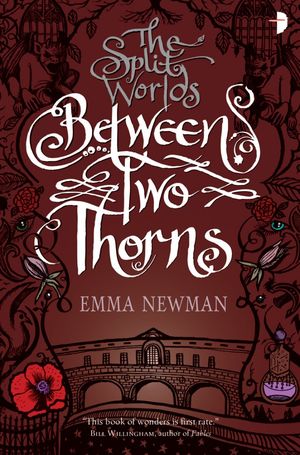Yesterday morning I tweeted a handful of insomnia-fueled things related to some discussions that have been floating around in the ether this week:
But then I realized I wanted to unpack some of this a little more and make an auxiliary point or two, as you do. So rambly post, it is.
After I made these tweets, I skimmed the post that touched off this latest round of discussion about Heinlein and whether someone has to read the SF classic canon to be a fan of the genre or a contributing member of the field, and also went and read Scalzi's reaction to it (which I very much agree with).
Even having been around the field as long as I have, I don't really feel like I understand fandom very well, so I'm not going to talk about that much.
What I mainly want to do is throw out a few ideas about reading.
So, first tweet, my Heinlein policy: I'm only half-joking here. Ask most YA authors or professionals who've attended SFF conventions and they'll confirm that at most of them, whether it be chatting in a hallway or on a panel, someone will ask you about the Heinlein juveniles or express their regret that they don't make books like that anymore and this new-fangled YA stuff has just taken over or tell you about what they want the next trend to be (note: Heinlein-y stuff!*).
It does get tiresome–especially because YA science fiction and fantasy has been in the midst of a new golden age for more than a decade, as far as I'm concerned, and if people want to write it (as many of the people who say the stuff above do), then they should be reading current YA. Which isn't to say you can't read old stuff or classic works can't inform us now. They absolutely can. But to assume that the progression of excellent fiction and exciting worlds and ideas and work stopped decades ago, when you were a kid reading the stuff, well… I just have to go to the bar. Be right back.
Also, you all know one of the things I hate most is when people have Strong Opinions about a genre or subgenre or type of book and have read zero to a number of examples that can be counted on one hand of that genre or subgenre or type of book and decided that they then understand the entirety of offerings under the umbrella. (Extra hate if they're writing about it in the Wall Street Journal or similar and pearl-clutching about the children, the children.)
Being really well-read in one genre or in all sorts of genres is a beautiful thing. Most of my favorite people on earth are. But to the second point I made yesterday morning, I have zero patience for reader shaming or for making people feel lesser or unwelcome or clueless because they haven't read the same things you have from some inevitably problematic canon checklist.
For kicks, here's a little excerpt of some thoughts I posted about my issues with The Canon as a thing at the Nervous Breakdown several years ago during a censorship controversy:
I don’t want to lay all this at the foot of The Canon, certainly not. But, hear me out, I do think that the elitist desire to rank fiction–when the rankers always, always have an agenda, be it a clear-cut one or not–ends up contributing to certain crazy ideas people hold about literature, especially people who don’t get out enough. And by get out enough, I mean who don’t read contemporary fiction, because it hasn’t been stamped by the mighty passage of time. Do I believe that history sorts out good books from the pack? Sometimes. Do I believe excellent fiction gets swallowed up as the years pass? Sure. Do I believe that the only healthy approach to reading involves throwing some newer stuff into the mix? With all my brain.
(Always nice when you still agree with yourself after time goes by.)
And yet, despite that, I'm actually not bugged by the Heinlein juvenile rhapsodizers not being current on modern YA–if it's not their thing, it's not their thing. What I'm bugged by is the casual dismissal of a body of work they're not familiar with, a determined averting of the eyes from it with their explicit or implicit insistence that the old classics are somehow innately better than books they haven't read.
Back to what I said yesterday morning: Never feel bad about your reading history–it's yours. And we're all still living our reading lives, which means if you encounter a blind spot and are interested in filling it in or giving something new a try, then you can do that.
I certainly have. When I decided to go to Vermont, one of the major reasons was because I didn't feel like I had enough context to fully understand children's literature and YA. Sure, I'd read plenty of current YA and I was writing it. But I hadn't read many of the classics of that field and I wanted a better grounding. My very first residency had a survey course, for which I read something like 70 books ranging from picture books to middle grade to YA, both older and newer, and then for the next two years, I read along that spectrum nonstop.
I like sinking into a new genre's worth of reading, picking up techniques and an idea of how different fields and genres and subgenres have evolved and continue to. But I absolutely don't expect everyone else to do this. I love recommending books, but I'm never offended if people pass on the recommendations.
If there's something you aren't interested in or haven't been interested in yet–or that you tried and didn't like–hey, fine. Your reading life is your own.
Re: point the third that our reading helps define who we are. I think we all know this, right? Books become a part of us. Everything we read enough of or react to strongly does. A reader is a person books are important to.
And so attempts to claim people don't belong or have the right frame of reference if they haven't read this or that is basically a complaint that people are trying to come to your party who aren't exactly like you. It does strike me as a variation on the "fake geek" argument, an attempt to put a sign on the old clubhouse that says No Admittance, not getting into this party without the stamp of approval.
But isn't it a way more fun party if new people show up, people who don't care whether you approve of them or not?
Which brings me to the real reason I wanted to do a post, because there's something I didn't touch on that I think is important.
While your reading history–past, present, and future–is your own, I do recommend giving some periodic thought to it. If, for instance, when asked to come up with a list of your ten favorite books every one of them is, say, written by a man or there are no authors of color included, then you might want to notice that and think about why it might be. Same if the last ten books you read can be described that way. But your reading is your own, ultimately, and while I suspect it would be richer if you got out more and mixed things up (and while such lists make me crazy), if it's a list of favorites, then your favorites are your favorites.
The problem comes when that list somehow gets mentally shifted from a personal favorites list–a this-is-what-I–like-best–to an empirical** best list–a this-is-the-highest-quality-example-of-book-type. And it's even more problematic if you're writing for a media outlet, or making a list to share in the real world, or nominating for awards, or writing reviews, or choosing what's important enough to be reviewed, or putting together an anthology, etc., and that difference isn't clear to you and something you correct for thoughtfully if need be.
When people point that kind of omission out or the attitudes that lead to it, that is not policing reading. That's inviting more people to the party.
*Nothing necessarily wrong with that, just no vacuum-sealed, as if it was gently lifted from a time-capsule stuff, please.
**Same problem as canon. Reasonable people can try to agree, but there will always be issues.





